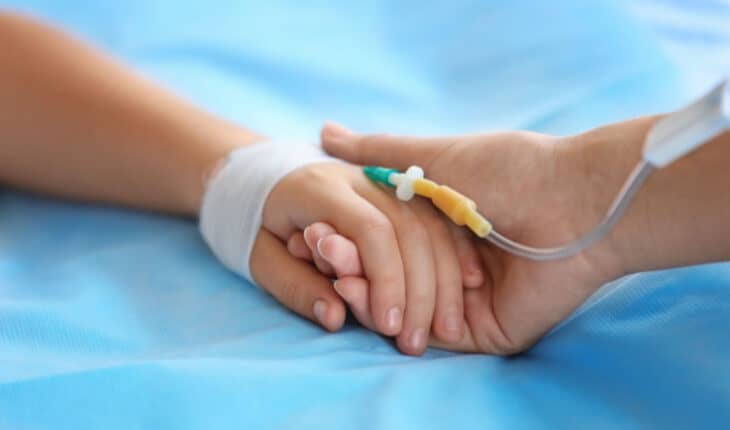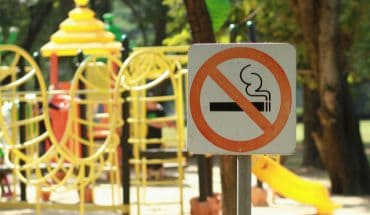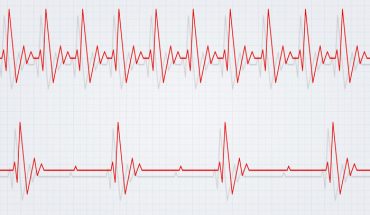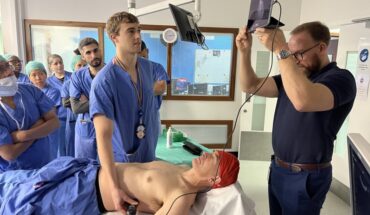Alternatives to hospital admissions for children insufficient, new report claims: There are record numbers of unwell children being admitted to Scottish hospitals and the current new alternatives being used are insufficient, a new University of Aberdeen study concludes.
The researchers are calling for the introduction of a “Hospital at Home” service for those children who are eligible, similar to that implemented in England, in a bid to reduce the ‘unsustainable’ stress on hospitals.
Treating children at home who are unwell but don’t need a hospital admission eases pressure on an already strained health service and is usually more convenient and comfortable for the young person and their parents.
The current sustained increase in paediatric admissions has been attributed to several factors:
- parental health seeking behaviour is changing,
- the capacity of community care such as GPs and NHS24 to meet the need is under pressure,
- hospitals are sending children home earlier which means more end up returning.
Dr Smita Dick and Professor Stephen Turner are trying to find ways to slow and potentially even reverse this trend.
Dr Dick and Professor Turner published two papers in the leading UK paediatric journal, Archives of Disease in Childhood, in which they reviewed all the scientific literature published since 2000 that looked at different ways of providing care for unwell children which might avoid an emergency hospital admission.
They looked at a number of alternative ways to assess children who are unwell, including:
- The inclusion of a short-stay observation area in hospitals.
- Placing senior paediatricians in the Emergency Department.
- Having out of hours general practitioners as an alternative to Emergency Department.
- Telemedicine between GPs and the receiving hospital clinician.
In addition, they reviewed existing agreed ‘pathways of care’ documents – plans that state what treatment plan should be followed.
The research found that overall there was no evidence that these alternatives definitely work with the exception of telemedicine which shows considerable promise.
Dr Dick explains: “There was not a lot of research published. What we found was that, where research was available, it indicated that telemedicine may be effective in reducing the need to have an admission, but the other interventions did not seem to help.
“Hospitals are bursting at the seams and this year-on-year increase is unsustainable. It is vital that we find interventions that actually work.
“Around 60% of children admitted to hospital as an emergency case are in hospital for less than 24 hours. This suggests that many of those children might have been treated at home rather than in hospital.
“We have been looking at different ways of providing care and advice for parents and community-based doctors and nurses looking after unwell children. Many different approaches have been taken but most don’t seem to work. We have highlighted what probably does not work.
Other research has shown that one such intervention that has been successful in reducing older adult admissions is the Hospital at Home service. In the elderly, the Hospital at Home service is well known to reduce hospital admissions providing treatments in the comfort and familiarity of their own home.
The service enables people to receive treatments that would otherwise require them to be admitted to hospital, such as an intravenous drip or oxygen supply. It also provides access to hospital tests under the care of a consultant in their own home.
This, Dr Dick suggests, may be an alternative to an admission for children: “In Scotland today there are 15 Hospital at Home beds per 100,000 adults, with an ambition to rise to 40-50 beds. Currently there are no Hospital at Home beds for children in Scotland.
“However, we know that Hospital at home for children is a success since it has been rolled out in many English towns and cities, it would be great for children and parents if Hospital at Home could be rolled out in Scotland.”
- Combination of drugs could prevent thousands of heart attacks - 21st April 2025
- UQ Study Links Poor Teen Diets to Heavy Social Media Use - 21st April 2025
- Gut microbiome could delay onset of type 1 diabetes - 3rd April 2025






